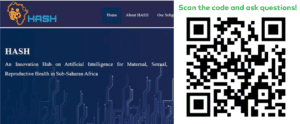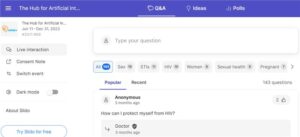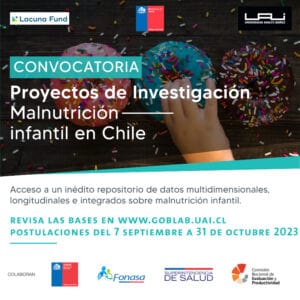Putting “Our Voice in Data”
21 September 2023Our Voice in Data
Today, we are pleased to announce Lacuna Fund is updating the English translation of our tagline to more accurately reflect the original tagline in Kiswahili “Sauti Yetu katika Data”.
“Our voice in data” reflects Lacuna Fund’s efforts to represent the voices of all communities in machine learning data. Lacuna Fund supports data scientists, researchers, and social entrepreneurs in low- and middle-income communities globally to create datasets that feature their countries, contexts, and languages – allowing the “voice” of those communities to be heard in the dataset.
In under-represented communities around the globe, Lacuna Fund grantees are working on important, innovative projects to serve their communities and improve social, economic, and environmental outcomes using machine learning applications. Many datasets, created by the first cohorts, are already available and open for use.
We are proud to put resources directly into the hands of researchers aiming to create inclusive, unbiased AI datasets for social good. And we hope to raise awareness about inequities that can result when people or geographies are missing in AI along the way, encouraging anyone who is using machine learning or AI to ask themselves: Is the data I am using representative of all affected communities? This is what putting “Our voice in data” means to us.
What does it mean to you? Tag us @LacunaFund on Twitter or LinkedIn and share what putting your voice – or your community’s voice – in data means to you. #OurVoiceinData
If you are a Lacuna Fund partner and need our updated logo, please email Selaam Dollisso (sdollisso@merid.org).
In this short video, Lacuna Fund grantees share their “voice in data” – the voices that are being represented in the datasets they are creating. Lacuna Fund is proud to support projects across the globe, spanning agriculture, language, health, and climate domains. Everyone’s voice should be heard in machine learning and AI tools.
Grantee Spotlight
Agriculture | Rangeland and Pasture Management in Namibia
Agricultural datasets have massive potential to drive sustainable growth. They can enable evidence-based decisions and improve productivity, climate resilience, and food security. One research team from Lacuna Fund’s 2021 Agriculture grantee cohort hopes to harness this potential in Namibian grassland, shrubland, and savanna ecosystems. Watch the video to hear more from the team at Farm4Trade about this project, as well as partners of the project at the University of Namibia, Omeva Consulting, and other local experts.
This is just one example of our grantees making an impact in their local communities, one inclusive machine learning dataset at a time. Read more about our amazing Agriculture grantees on our website (2020 cohort; 2021 cohort).
Opportunities
Submit Your Questions & Build a Sexual Health Dataset for Africa

The Hub for Artificial Intelligence in Maternal, Sexual, and Reproductive Health (HASH), along with its subgrantees, are implementing AI projects in Maternal, Sexual, and Reproductive Health (MSRH) focused on HIV, Sexually Transmitted Infections (STIs), Adolescent SRH, and Maternal Health. If you have questions about sexual health, you can submit them anonymously and receive answers from qualified medical professionals! You can also browse others’ questions and answers. HASH’s subgrantees highlighted limited availability of publicly accessible MSRH datasets as one of their most significant challenges. Your contribution to this dataset will play a crucial role in improving access to accurate MSRH information in Africa and furthering AI on the continent.

Call for Proposals Open for Chilean Child Malnutrition Project

The team behind one of Lacuna Fund’s supported projects in the health domain has an open request for proposals (RFP) to share! The project focuses on the reduction of child malnutrition in Chile and is an initiative led by GobLab UAI. The data repository includes longitudinal and integrated data on the nutritional status of the child population, its socioeconomic and demographic characterization, and the use and costs of health care. The purpose of the RFP is to encourage researchers to use this unprecedented repository.
The project team envisions that Chilean researchers apply with existing international partners or Chilean nonprofits with partnerships abroad. It is also open to international researchers that partner with Chilean organizations (can be nonprofits, universities, or research centers). The call, and the associated database, is in Spanish. Learn more on their website!

